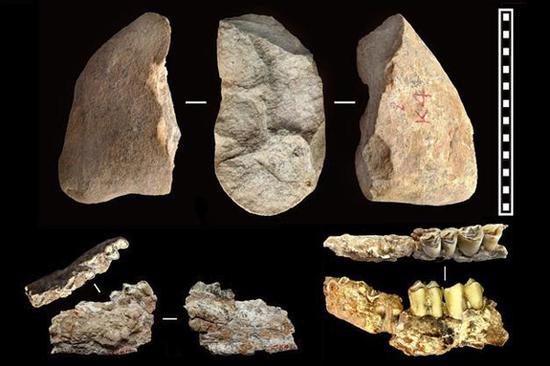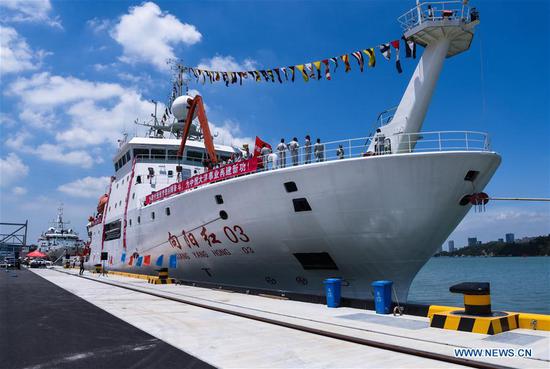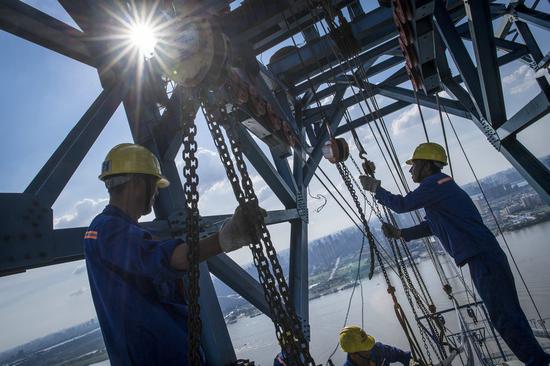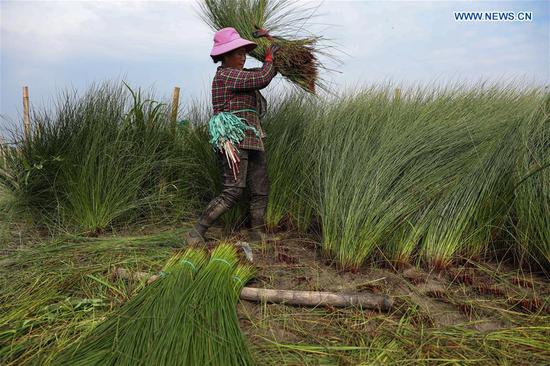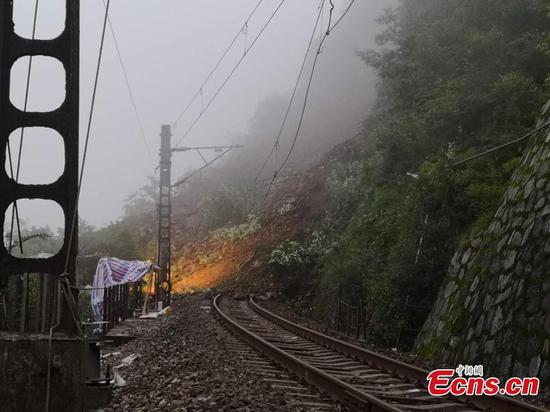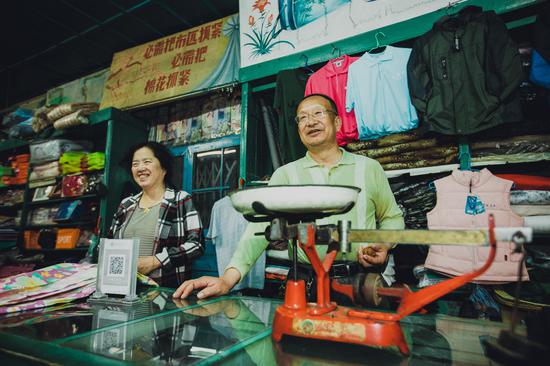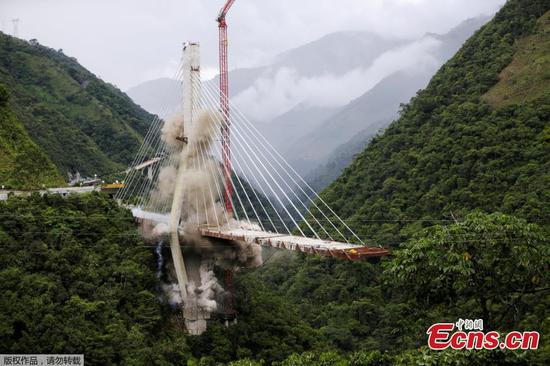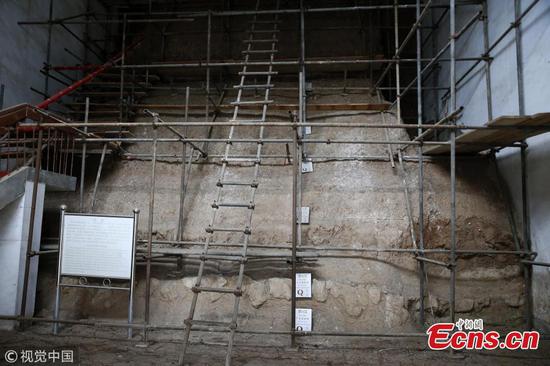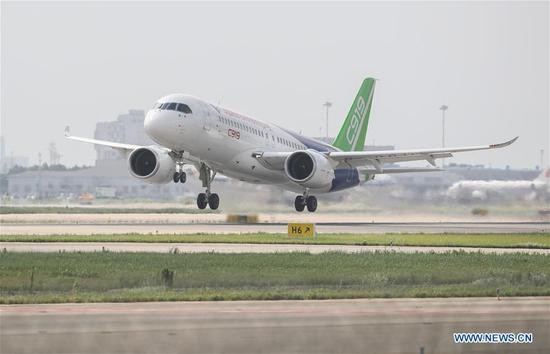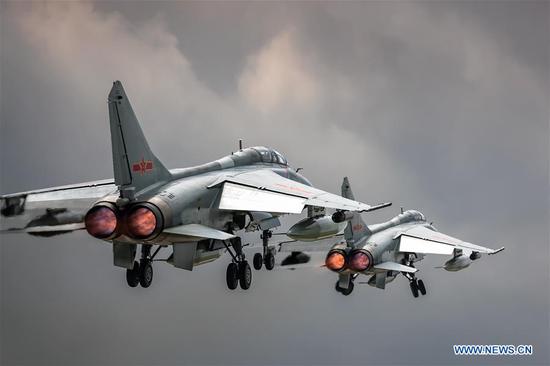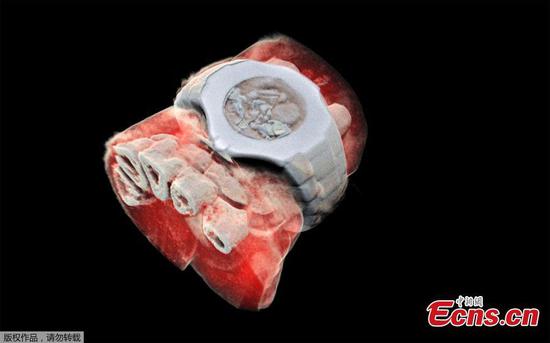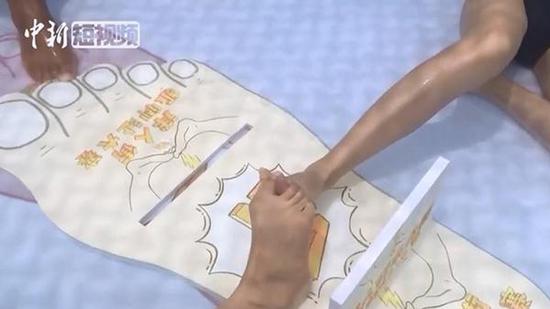Sector to better cooperate with B&R markets
China's manufacturing industry has been making massive progress over the past four decades, especially in areas like high-speed railways and artificial intelligence (AI), and the sector will continue opening up at a higher level and also seek ties with Belt and Road (B&R) initiative markets, a senior Chinese official said.
Xin Guobin, vice minister of Industry and Information Technology (MIIT), told an industry meeting on Friday that since China's reform and opening-up began 40 years ago, the domestic manufacturing sector has marked many achievements, with high-tech manufacturing experiencing a sound growth momentum, currently accounting for more than 12 percent of industrial output, news site finance.people.com.cn reported on Saturday.
Sectors including high-speed rail transport have made breakthroughs, and new technology, products and business patterns related to AI, Internet of Things, big data, cloud computing and blockchain have emerged in recent years, Xin said.
But the innovation abilities of China's manufacturing industry remain weak, and the sector, which largely depends on foreign markets, is still at the middle- and low-end position of the global industrial and value chains, according to Xin.
At the meeting, he also noted that China "should grasp the opportunity of the 40th anniversary of the country's reform and opening-up to follow the trend, as the domestic economy further integrates into global economic growth and actively enhances the opening-up level of the manufacturing industry," according to the media report.
China will implement opening-up measures to ease market access for foreign capital in sectors including auto manufacturing and aviation, it said.
Meanwhile, Chinese companies are expected to "go global" at a more advanced level through building projects along the B&R initiative routes, Xin said.
According to an MIIT survey that investigated more than 130 types of basic key materials at 30 Chinese large-scale enterprises, 32 percent of them had not been made in China, the report said.
The survey also showed that more than 70 percent of intelligent terminal processors and most memory chips depend on imports.
"We still have decades left of filling gaps with developed countries, and the road ahead to build China into a strong manufacturing country is still very long," Xin was quoted as saying in the report.
Xin said that the domestic manufacturing sector is expected to further boost its innovation abilities, while market speculation of so-called new technology or new industries in some local provinces should be dispelled.




















